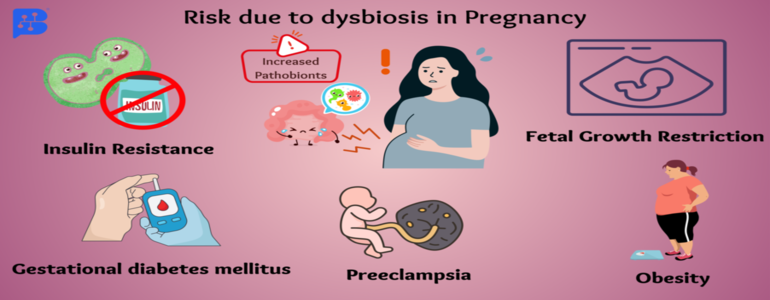- Oct. 6, 2023
- Saran Varadan
- On Microbiome
Environmental Effects on Microbes and Consequences of Gut Health
As India is a culturally diverse nation with a myriad of anthropological findings, the natural environment that encompasses it is home to a vast number of microorganisms. Each environment is unique towards how an individual's health is affected as a result of different factors. This can be observed as certain environments can cause diseases to an individual who grew up in a different place as opposed to an individual who has been living in that environment their whole life. Likewise, certain organs in the human body tend to be affected the most when compared to others due to being the target site of either a pathogen or microbe. While individuals are affected differently as a result of their environment, how each individual is affected as well as the effects they suffer is also related to genetics. This can be observed comparatively with smokers and nonsmokers. Despite proof from scientific research that smoking indeed causes cancer, some individuals are seen to be chain-smokers and live a long life without any severe health complications. On the other hand, individuals who are observed to be maintaining a healthy lifestyle through incorporating exercise and diet in their daily lives, have been reported to suffer various diseases and even cancer (Kusnierczyk 2023).

An individual's genetic makeup is composed of their DNA and which genes are expressed while others are not. For instance, receptors for a certain disease will render an individual unaffected due to not being expressed. Due to that specific gene not being expressed, there is no receptor for a certain disease and the body is not applicable towards being infected. Moreover, gene expression serves as an example of intraspecies variability when certain microbes exist in an individual and not in another despite living in the same environment. When an individual is exposed to food or water in an environment through ingestion, the organ most affected is the gut. For example, individuals who have ingested water from an open source tend to experience symptoms of diarrhea as well as stomach indigestion. Through affecting the gut and exposing it to certain conditions, microorganisms will remain there and the body will eventually adapt to microbes of the same species that exist in that environment. Nevertheless, microbiomes in the gut contain a mutualistic relationship without the human body as they are important in carrying out several body processes and in turn gain a home to thrive and survive while living in the gut. Some of these processes carried out by microbes in the gut include biotransformation of conjugated bile acids, synthesis of certain vitamins, and degradation of dietary oxalates (Kelsen et al 2012). However, there are several occasions in which microbes can cause complications, requiring physicians to know which specific microbe is problematic to provide remedial solutions.
Many microbes can thrive in certain conditions while others are unable to due to their genetic makeup. Similar to humans, while many have adapted to living in cold climates, individuals who grew up in warm arid climates are unable to adapt effectively to their surroundings and environment. Conditions that determine whether a microbe is able to effectively thrive in their environment include humidity, temperature, oxygen content and various pollutants (Singh et al 2016). As discussed earlier, regardless of environmental conditions, microbe type and specificity play a significant factor in how they exist in their environment. Moreover, this is detrimental to the gut of an individual predisposed to an environment their entire life since birth. For example, despite living in a humid environment with a warm climate, many individuals are seen to have been observed suffering from a disease that was believed to be less effective. This is due to the fact that the microbe contains several adaptable characteristics allowing it to survive in environments that prove otherwise fatal (Singh et al 2016).
Due to the variability of different microbes as well as the conditions they are able to effectively survive, this creates the necessity of remedies from pharmaceutical companies. Many healthcare companies are able to determine remedies for microbes through surveying the different complications and symptoms an individual may be experiencing. For example, Leucine Rich Bio, a healthcare company based in India aims to determine remedies for people experiencing complications from the microbiome centered in the gut. Leucine Rich bio was able to implement a platform called BugSpeaks that is able to effectively analyze gut microbial sequencing data and create actionable solutions. BugSpeaks functions by primarily determining what microbe is causing complications in the gut as well as serving as a potential index for which microbe physicians and pharmacists would be potentially dealing with (Leucine Rich Bio 2023). This drastically reduces the need for more invasive tests being conducted when doctors test patients from symptoms they encounter. In addition to the microbe index,
BugSpeaks also provides a disease risk index and three phase nutritional recommendations. The disease risk index acts as a measure for individuals to determine the severity of their condition and encourage them to seek medical assistance sooner before complications worsen (Leucine Rich Bio 2023). As discussed earlier, the three phase nutritional recommendations work hand in hand with the disease risk index and represent actionable solutions which can be implemented.
The three phase nutritional recommendations monitor the individual over a course of time and determines how a certain solution or remedy should be altered. Genome sequencing is a procedure first conducted from a sample obtained by an individual in order to determine the exact problem they may be facing. Genome sequencing is an effective tool which helps with finding the genetic signature of a certain microbe. After this is done, physicians and pharmacists are able to efficiently determine what problems and complications arise from the specific microbe the individual encounters. They can then provide medications and treatment plans accommodating the individual. Due to the ability of microbes to exist in environments that would otherwise prove fatal to them, BugSpeaks provides a manner of identifying these microbes efficiently. Furthermore, through properly identifying microbes, individuals will maintain a faster recovery period without further complications.
Overall, despite both environment and genetics playing a factor as to how the gut of an individual is affected, microbes that exist within the gut are similarly affected by both genetics and conditions that allow them to thrive. Despite their importance when carrying out bodily functions, several microbes have the potential to cause severe health complications. Due to research from pharmaceutical companies such as Leucine Rich Bio, platforms such as BugSpeaks allow for healthy aging and presents a platform for encouraging health education.
Sources
- Gupta, A., Gupta, R., & Singh, R. L. (2016, October 15). Microbes and environment. Principles and Applications of Environmental Biotechnology for a Sustainable Future.
- Kelsen, J. R., & Wu, G. D. (2012). The gut microbiota, environment and diseases of modern society. Gut Microbes, 3(4), 374–382.
- Kusnierczyk, P. (2023b). Genetic differences between smokers and never-smokers with lung cancer. Frontiers in Immunology, 14.
- Leucine Rich Bio is South Asia’s first microbiome company. Leucine Rich Bio. (n.d.). date accessed: 09/12/2023








